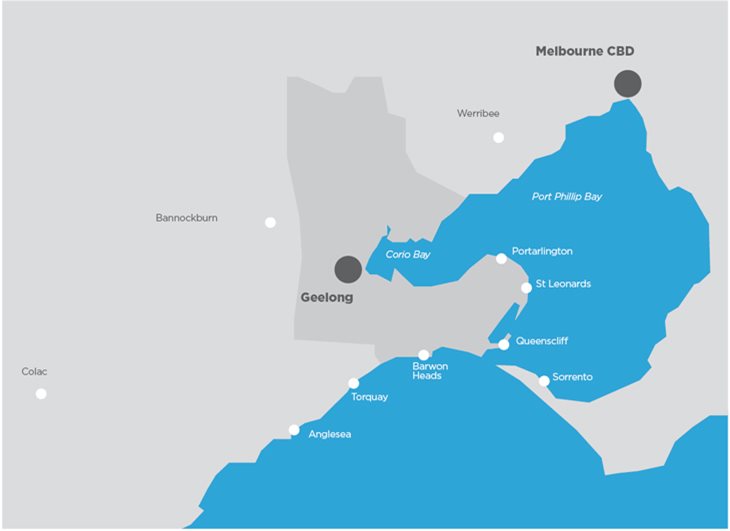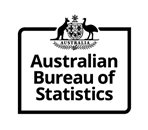

Skilling the Bay facilitates the delivery of targeted place-based initiatives that bring schools, tertiary education providers, community organisations, and industry in the Geelong and Barwon region together to prepare young people for the new world of work and provide them with an understanding of possible career pathways and work opportunities. Skilling the Bay seeks to raise educational attainment and retention levels, increase workforce participation through training and re‑skilling, and support the growth of existing and emerging industries.
Skilling the Bay is led by The Gordon Institute of TAFE and delivered in partnership with Deakin University and the Victorian Department of Education.
Through the Education and Pathways Initiative, Skilling the Bay aims to inspire and engage secondary students in learning and the world of work, promote the value of Vocational Education and Training (VET) and highlight career pathways to industries of regional significance.
Skilling the Bay’s Purpose
Deliver a place-based approach to promote, strengthen and supplement career pathways for young people into sustainable and decent work in the Barwon region.
Drivers & Strategic Responses
Stemming from this purpose are the objectives that have been established to guide Skilling the Bay actions, delivery, and the operational focus of the STB Program Management Office. These objectives were developed in response to key agreed drivers in the region, linking strategic goals to desired short and long-term outcomes.
Drivers
Students face difficulties navigating options to make appropriate pathway choices
Poor perception of vocational education and training as a valuable career pathway
Early school leavers face greater challenges in transitioning to sustainable and decent employment
Industry reports students lack skills to successfully transition to work
A diverse and rapidly changing economy (industry 4.0) requires higher levels of skills and training
Strategic Responses
Provide meaningful industry immersion experiences in trending and growing industries
Promote better understanding of the value of vocational education and training pathways
Raise awareness of career pathways to foster student aspiration and confidence
Facilitate collaboration between education, community and industry to reduce barriers and increase participation.
Prepare students to develop 21st Century skills for the contemporary workforce
Skilling the Bay’s ability to connect people, organisations, and resources and deliver evidenced-based programs is pivotal as an organising force for change in the Greater Geelong and Barwon region. With a guiding purpose to promote, strengthen and supplement pathways for people into sustainable and decent work, Skilling the Bay recognises the importance for people of all ages to see a path for themselves into new and emerging jobs and careers as the economy and nature of work change. Skilling the Bay’s Strategic Plan outlines how our Education and Pathways Initiatives address the drivers in the current reporting period.
Strategic Plan 2021 - June 2023 : Skilling the Bay 4.0
This Strategic Plan has been developed to articulate the goals and objectives of Skilling the Bay 4.0 (STB) and guide pathways initiatives and program delivery for 2021, 2022 and to June 2023, as part of the funding investment provided by the Department of Education and Training (DET, now known as the Department of Education (DE)).
Workforce Australia Local Jobs – Barwon
Skilling the Bay also manages the Workforce Australia Local Jobs Program for the Barwon Region. The program complements the Education and Pathways Initiative by connecting job seekers to local jobs. Local Jobs aims to:
- Provide support for upskilling, reskilling, and job opportunities by collaborating with local services and employers
- Minimise time out of work or training for job seekers
- Connect the greatest number of people to training and/or employment opportunities to meet local labour market needs, as quickly as possible
- Support local decision makers to identify and leverage existing employment and training services
- Enhance coordination of the Department’s existing range of place-based initiatives
- Enhance coordination and linkages with other Australian Government priorities and state government programs
Background
Skilling the Bay was originally conceived in 2011 as a project to support Geelong’s retrenched workers while building a skills base for the region’s future workforce. In its early days, a key focus of Skilling the Bay was to integrate cutting-edge research and innovation to create new business opportunities in the region.
As the project gained momentum and support, it received a $500,000 Victorian government grant to pilot the Geelong Future Industry Project. This project developed from a partnership between Cytomatrix, Austeng, and Deakin University. The partner organisations worked together to pilot an advanced manufacturing plant to produce short nanofibres.
With Geelong’s economic and workforce transformation placing the region in a stage of rapid change, Skilling the Bay’s initial support for workforce development progressed to building a comprehensive understanding of regional labour force needs and identifying potential future industry and workforce growth areas. A snapshot profile of the Geelong regional labour market in 2013 was subsequently developed.
In 2013, Skilling the Bay ran community consultations and released a discussion paper on the future of work in Geelong. A Geelong Jobs Summit was convened in June 2013 with key regional leaders. The Geelong Jobs Summit attracted broad community support and invaluable input contributing to the Skilling the Bay Priority Actions Report published in late 2013.
The Priority Actions Report findings identified the need for a determined and sustained commitment to lift the educational attainment of young people and adults and increase workforce participation by promoting re-engagement with education and training. The report and initiatives were approved by the State Government and funded five new initiatives that would:
- promote the growth of existing and emerging industries
- support the reskilling of workers
- build entrepreneurial capability
- raise educational attainment levels in science, technology, engineering and mathematics (STEM).
Skilling the Bay – 2021, 2022 to June 2023
Skilling the Bay received a further $1.6 million funding commitment in November 2020. This funding recognised Skilling the Bay's important role in the regional education landscape, linking students with vocational opportunities in the changing Geelong economy. The focus of the funding is to continue to deliver programs that inspire and engage secondary students in learning and the world of work in close collaboration with The Gordon TAFE.
Skilling the Bay developed The Geelong Education and Workforce Profile Report 2011–2021. The report set out a rationale for a continued regional effort to address structural adjustment and mitigate against the risks of industry 4.0, outlining regional needs, future challenges, opportunities, and growth areas. Skilling the Bay seeks to ascertain the regional aspirations to undertake the recommendations suggested in the Report and act collaboratively.
Region
Skilling the Bay provides a skills and training response to the critical issues facing the Greater Geelong and Barwon region.
Geelong is the largest regional economy outside of Melbourne and the fastest-growing regional city in Victoria, Australia. Geelong is also undergoing an economic and workforce transformation. The Skilling the Bay project was established in response to the critical economic changes impacting Geelong. Pivotal to the response was the desire to proactively support Geelong’s transition to a new, knowledge-based economy.
 City of Greater Geelong in darker Grey relative to Port Phillip Bay and Melbourne
City of Greater Geelong in darker Grey relative to Port Phillip Bay and Melbourne
In 2020 Skilling the Bay completed an independent research report to profile the economic and workforce changes in the region from 2011–2021, The Geelong Education and Workforce Profile Report.
















